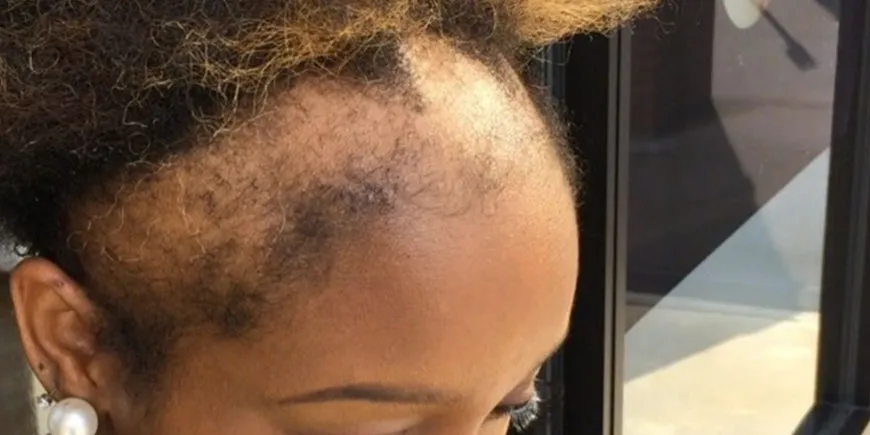Hair loss can be a distressing experience for both men and women, and one common condition that causes it is alopecia. Alopecia is an autoimmune disorder that results in the loss of hair on the scalp or other parts of the body. While medical treatments are available, some individuals prefer to explore natural alternatives. In this blog post, we will explore some of the best herbal remedies for alopecia and provide instructions on how to prepare them.
Table of Contents
Aloe Vera

Aloe vera has been used for centuries for its medicinal properties, including promoting hair growth. It contains enzymes that can stimulate hair follicles and improve scalp health. To prepare an aloe vera treatment, extract the gel from fresh aloe vera leaves and apply it directly to the scalp. Leave it on for 30 minutes before rinsing with lukewarm water. Repeat this process a few times a week for best results.
Rosemary

Rosemary is known for its ability to stimulate hair growth and improve circulation to the scalp. To make a rosemary rinse, steep a handful of fresh rosemary leaves in two cups of boiling water for 20 minutes. Allow the mixture to cool, strain it, and use it as a final rinse after shampooing your hair. Massage it into your scalp, leave it on for a few minutes, and then rinse it out.
Peppermint

Peppermint has cooling and soothing properties, and it can help improve hair growth by increasing blood flow to the scalp. Mix a few drops of peppermint essential oil with a carrier oil, such as coconut oil or jojoba oil. Massage the mixture into your scalp gently for a few minutes and leave it on for 30 minutes before washing your hair. Repeat this process two to three times a week.
Saw Palmetto

Saw palmetto is a herb that may inhibit the conversion of testosterone to dihydrotestosterone (DHT), which is believed to contribute to hair loss in some cases. You can find saw palmetto in supplement form or as an oil extract. Follow the instructions provided by the manufacturer or consult a healthcare professional for the appropriate dosage.
Ginseng

Ginseng is a popular herb known for its rejuvenating properties. It can help stimulate hair follicles and promote hair growth. Brew a cup of ginseng tea and allow it to cool. Apply the tea directly to your scalp and leave it on for an hour before rinsing it out. Repeat this process once or twice a week.
Lavender

Lavender is not only known for its soothing aroma but also for its potential to promote hair growth. It can help improve blood circulation to the scalp and provide a calming effect. Mix a few drops of lavender essential oil with a carrier oil, such as almond oil or olive oil. Massage the mixture into your scalp for a few minutes and let it sit for 20 to 30 minutes before rinsing it out. Incorporate this treatment into your hair care routine a few times a week.
Onion Juice

Onion juice is a popular natural remedy believed to stimulate hair growth. It contains sulfur compounds that may help nourish the hair follicles and promote regrowth. Extract the juice from a fresh onion by blending or juicing it. Apply the juice directly to your scalp, massaging it in gently. Leave it on for 30 minutes to an hour before washing your hair. Due to its strong odor, you may want to rinse your hair with a mild shampoo afterward.
Fenugreek Seeds

Fenugreek seeds are rich in proteins and nicotinic acid, which are believed to strengthen hair follicles and stimulate hair growth. Soak two tablespoons of fenugreek seeds in water overnight. In the morning, grind the soaked seeds to form a paste. Apply the paste to your scalp and hair, leaving it on for 30 minutes before rinsing thoroughly. Repeat this process twice a week for best results.
Green Tea

Green tea is packed with antioxidants and can help promote hair growth by reducing hair loss and stimulating the scalp. Brew a strong cup of green tea and allow it to cool. Apply the cooled tea to your scalp and hair, gently massaging it in. Leave it on for an hour before rinsing it out. Incorporate this treatment into your routine a few times a week.
Hibiscus

Hibiscus is known for its ability to nourish hair, prevent breakage, and stimulate growth. Create a paste by grinding hibiscus flowers or leaves with a little water. Apply the paste to your scalp and hair, leaving it on for an hour before washing it off with a mild shampoo. Repeat this process once or twice a week.
Conclusion
While herbal remedies can offer potential benefits for individuals with alopecia, it’s important to remember that results may vary. Additionally, maintaining a healthy lifestyle, managing stress levels, and adopting good hair care practices can contribute to overall hair health. Combining these herbal remedies with a holistic approach may help promote hair growth and improve the condition of your scalp.






